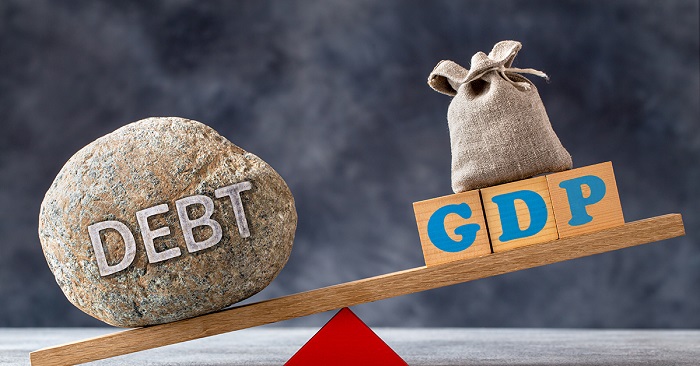Notwithstanding being one of the world’s biggest producers of cocoa and one of the leading producers of gold in Africa, Ghana’s basic problem is that it does not earn enough through exports to pay for everything it imports.
This is known as the balance of payments deficit and is partly what the IMF loan is designed to help with. But that is not all.
The programme is also expected to significantly slow the rate of inflation and ensure a stable local currency.
All of these will benefit ordinary Ghanaians through stable prices of basic commodities including imported ones.
Now the begging question is, how did Ghana get here if it exports arguably more valuable commodities than imports
According to Ghana import data, in 2019 Ghana’s imports totaled USD 10.4 billion, down from 2018’s USD 11.8 billion. Based on Ghana’s trade statistics and analysis, Ghana stood at 93rd position in worldwide imports.
Trade data also reveals Ghana’s major import partners are China, the United States, the United Kingdom, India, and Belgium.
Likewise, Ghana’s exports totaled USD 16.7 billion in 2019, declining marginally from 2018’s USD 17.0 billion.
Ghana export statistics show Ghana stood as the 76th exporter country in the world in 2019.
However, according to the Bank of Ghana’s March 2023 Summary of Economic and Financial Data, the country’s Balance of Payments at the end of February 2023 stood at a deficit of $3.63 billion, approximately 5% of the Gross Domestic Product.
This was a result of a significant decline in the Capital and Financial Account Balance which stood at a deficit of $2.17 billion in December 2022, compared with a surplus of $.3.30 billion in December 2021.
The negative Capital and Financial Account Balance was a result of a net portfolio of investments outflow of $2.05 billion in December 2022.
Comparing import and export commodities
Ghana export data reveals pearls and precious Stones make up (36.97%), mineral fuels and oils (31.7%), cocoa and preparations (16.1%), ores, slag & ash (2.3%), edible fruits and nuts (2.1%), plastics (1.3%), animal or vegetable fats & oils (1.1%), preparations of meat, fish or crustaceans (0.8%), wood & articles (0.7%) and inorganic chemicals (0.7%). These commodities show that Ghana’s top 10 export commodities shared 93.77% of the total value of exports in 2019.
When it comes to imports, Ghana’s import data reveals that the country imported vehicles the most in 2019, which shared 16.2% value of overall shipments. Ghana’s other major imports in 2019 were machinery (13.0%), electrical machinery & equipment (6.5%), cereals (5.0%), plastics (4.7%), articles of iron & steel (3.7%), salt, sulfur, earth & stone (3.5%), iron and steel (3.4%), mineral fuels & oils (2.8%) and wood & articles (2.8%).
So will the IMF loan correct the balance of the payment deficit?
It has been considered risky to lend money to Ghana, but the new IMF programme should mean that the country can borrow again to implement its policies.
Development partners, including the World Bank, have promised to help the country come out of its economic quagmire, while investors are now likely to return without fear of losing their money.
However, if past experience is anything to go by, this cash injection from the IMF will not necessarily solve the country’s long-term economic problems.
By putting flexible exchange rates into motion, the disequilibrium in the balance of payments is automatically solved by the forces of demand and supply for foreign exchange. An exchange rate is the price of a currency which is determined, like any other commodity, by demand and supply. The interbank exchange rate has seen a momentous positivity since the pronouncement of securing an IMF bailout programme.
In addition, devaluation raises the domestic price of imports and reduces the foreign price of exports of a country which devalues its currency in relation to the currency of another country. Devaluation is referred to as an expenditure-switching policy because it switches expenditures from imported to domestic goods and services.
When a country devalues its currency, the price of foreign currency increases which makes imports dearer and exports cheaper. This causes expenditures to be switched from foreign to domestic goods as the country’s exports rise and the country produces more to meet the domestic and foreign demand for goods with a reduction in imports. Consequently, the balance of payments deficit is eliminated.
The government of Ghana can also adopt direct controls which aim at limiting the volume of imports. It can restrict the import of undesirable or unimportant items by levying heavy import duties, fixation of quotas, etc.
Given the foreign exchange rate and prices in Ghana, an increase in the value of exports like value addition before export or for domestic use can cause an increase in the incomes of all persons associated with the export industries. These, in turn, create demand for other goods and services within the country.



